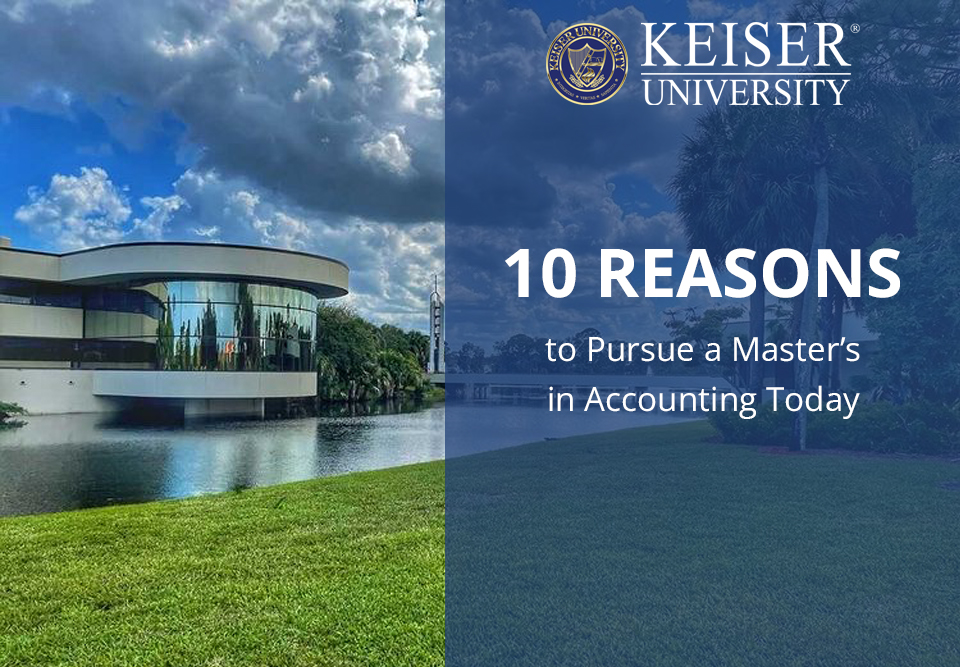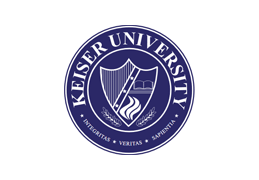While technically you only need a bachelor’s degree to start working as an accountant, the credit requirements to sit for the CPA exam require more than just the basic 120 hours. Thus, many people who are pursuing a career in accounting will consider a master’s degree at some point in their journey. Adding additional training helps you focus your skills and improves your earning potential. There are many perks to getting a master’s degree in accounting that are worth considering as you look at your career options.
What Is a Master’s in Accounting?
A master’s in accounting is a graduate-level degree in accounting. It digs more deeply into accounting topics to provide a deeper base of knowledge, while also preparing the student to take additional examinations in the field. There are three basic program options if you are looking for graduate training in this field, though the Master of Accountancy and MBA with Accounting Specialization are the two most common. These options are:
1. Master of Accountancy
The Master of Accountancy, or MAcc, is a degree that prepares students for a career in public accounting work. Students graduate with a strong understanding of business principles and accounting, and they also are prepared to take the CPA exam.
2. MBA with Accounting Focus
A Masters of Business Administration, or MBA, often offers a wide range of concentrations or specializations, and accounting is one of them. This degree has a broader focus, as it includes all of the business training you need, but with a specialization in accounting, you will also take a large number of accounting courses. This allows the student to hone their business skills while also learning more advanced accounting.
3. MS in Accounting
The MS in Accounting provides the technical knowledge a student needs to take the CPA exam and start practicing as an accountant. It is similar to the MAcc, so many schools will offer one or the other, but usually includes additional higher level math or quantitative courses.
MBA vs. MAcc/MS in Accounting
The primary difference between an MBA and a Master of Accountancy is the focus. An MBA provides a broad business focus with an emphasis on accounting. A master’s in accounting is a “deep dive” into accounting, with a little bit of business training available through electives. The MBA is a good choice if you are looking for a high-level management role within the financial field, while a Master’s in Accountancy is a good choice if you want to specialize in a certain area of accounting or need to fulfill the credit requirements for the CPA exam. It can also work well for people interested in teaching accounting.
10 Benefits of Accounting Master’s Degrees
Regardless of the degree you choose, there are several perks you will enjoy if you decide to earn a graduate degree in accounting. Here are some of them.
1. Multiple Career Paths
You may think that your only option with a master’s degree in accounting is to work as a CPA in an accounting firm, and that would be a lucrative and rewarding position, but there are many more options available to you. For example, accounting training is necessary if you want to work in a role that lets you audit a business’s financial documents, and it may be necessary for a financial management position.
The Bureau of Labor Statistics lists many accounting roles that a master’s degree would position you to work in. Some of these include:
- External auditors
- Government accountants
- Information technology auditors
- Management accountants
- Internal auditors
- Chief financial officer
- Tax accountant
Advanced knowledge of business and accounting is necessary for each of these positions, which means a master’s program is the training you need.
2. Preparation for Accounting Certification
If you want to become a Certified Public Accountant, you must take the CPA exam. This requires not only a bachelor’s degree, but also 30 additional credit hours beyond the 120 hours for most bachelor’s programs. Thus, you must have some graduate school or extra undergraduate credits to fulfill these credit requirements and sit for the CPA exam. Since the CPA exam is one of the most difficult professional examinations, having a master’s degree with a focus on accounting may be the best route to take to prepare yourself to sit for it. Note that no program can guarantee you will pass the CPA exam, so it is important to find one that will help you to achieve your goals post-graduation.
3. High Return on Investment
Advanced degrees are often tied to larger salary options. Across all industries, the Bureau of Labor Statistics indicates people with a master’s degree earn $240 more a week than those with a bachelor’s degree. In accounting roles, there are even greater spans. For example, with a master’s degree, you might be qualified to step into a Chief Financial Officer position, which has an annual salary average of $179,520 a year. Financial managers are another group of professionals that an advanced accounting degree can open the door to, and they earn an average of $131,710 a year. A high salary means your degree has a high return on investment.
4. Flexible Education Options
Another perk to earning your master’s degree in accounting is the flexible education options available to you. You can take your classes online for many programs, or you can use a hybrid program to take some online and some in the classroom. This allows you to continue working while earning your advanced degree, which is particularly important for adult learners going back to school while already in their careers.
At Keiser University, our graduate programs in accounting offer all three learning models. You can earn your degree entirely online, participate in a hybrid learning program or take your classes on-campus. This flexibility means learners of all types and styles can find a degree path that fits their needs.
5. Employer Assistance
If earning your master’s degree could help your employer, you may qualify for employer assistance programs. Many employers who are in the finance industry need certified CPAs on staff, so they may be willing to offer some tuition assistance to you as you pursue this additional training. In fact, many accounting firms and financial companies automatically offer employer assistance to their employees who are considering an advanced degree, so ask your employer if this is an opportunity available to you.
Even if there isn’t an official program in place to offer this kind of help, you could approach your employer to discuss the benefits of your additional education, and then use that to ask for some tuition assistance. With a well-crafted presentation that shows how your degree benefits the company, you might be able to get some financial assistance.
6. Expanded Knowledge and Expertise
The primary reason many people choose to go to graduate school is to become more knowledgeable in their field. A bachelor’s degree is a great start for an entry-level job in accounting, but you may want to deepen your knowledge for specialized opportunities. If you are finding that you have a knack for financial work, but you want to expand that knowledge and expertise, then going back to school could give you the push you are looking for to improve your skills and expand your understanding in the field. A graduate degree offers the opportunity and time to dig more deeply into relevant topics.
The type of knowledge and expertise you receive depends on which program you pursue. The MAcc gives you depth and extensive expertise about accounting specifically. An MBA with Accounting Specialization gives you more breadth and expanded business knowledge. Both are beneficial, and the one you choose will be based on your personal and professional goals. No matter which you choose, your knowledge will expand, so the choice depends on what your future career path looks like.
7. Opportunity to Distinguish Yourself
Having a master’s degree, no matter the field where you work, provides distinction. Only 13.1% of the adult population age 25 and older has a master’s degree, according to the Census Bureau, and this includes accountants. You will stand out from the crowd on job applications, and you will be able to apply for better roles. You will gain the respect of many in your field because you had the tenacity to complete your graduate-level training. Distinguishing yourself in this way will also help expand your career opportunities.
When it comes to promotions, having a master’s degree could potentially fast-track you to the top of your employer’s shortlist. Employers know that someone who holds a master’s degree has improved their skills in several ways, including:
- Improved leadership capabilities
- Advanced knowledge and expertise in important accounting principles
- Diversified skill set in specific accounting areas
- Improved communication, people, and presentation skills
Simply having your master’s degree automatically tells your employer you have worked to earn these skills, which can help you stand out from the competition when being considered for a promotion or when applying for a job opening in the field.
8. Ability to Move into Leadership Roles
When you have a master’s degree in accounting, you have the qualifications to take on a higher-level management or leadership position within the organization where you work. Your deeper knowledge of accounting principles and how to apply them to business entities will benefit those under you. With an MBA specifically, you will also get some management and leadership training to go alongside the accounting training so that you will be well-qualified for leadership.
Leadership roles in accounting are not limited to a career path based on management positions. You can also position yourself to be an educator when you earn a master’s degree. You can teach full-time, or you could add a few classes to supplement your income as an accountant, but you will need a graduate degree to do so. If you feel that you want to inspire the next generation of financial professionals, you will need a master’s degree.
9. Networking Opportunities
Master’s degree programs always provide networking opportunities, and in the accounting field, networking can turn into beneficial career opportunities. Your master’s degree puts you in contact with professors and other students that can become part of your professional network. Add them on your social media accounts and follow them on LinkedIn, and you will be in the know when new job opportunities open up. In addition, you will become part of an alumni network that will put you in contact with other professionals in the accounting field, and this will further expand your network.
10. Specialization Options
Within your master’s degree in accounting, you may be able to specialize even further. You could specialize in auditing or taxation, or you could specialize in management. Forensic accounting, which focuses on the accounting work necessary to solve white-collar crimes, is another interesting field. Consider adding courses that will focus on these areas of concentration if you have a particular area of interest within the accounting field.
Start Your Graduate Training with Keiser University
If you are ready to take your bachelor’s degree to the next level and earn the credit requirements to sit for the CPA exam, then Keiser University is here to help. Start your journey and apply to one of our accounting master’s degree programs. We have both an MBA with Accounting specialization (online, hybrid and on-campus) and a Master of Accountancy program (online), so you can find one that matches your career goals. Reach out to our graduate school admission’s counselors today to start your journey toward a master’s in accounting.






 My instructors believed in me. They were more than instructors, they tried to get to know you as a person and tried to understand your goals so they could push you towards them. Student services helped me find a job before I even graduated. Everyone was dedicated to my overall success.
My instructors believed in me. They were more than instructors, they tried to get to know you as a person and tried to understand your goals so they could push you towards them. Student services helped me find a job before I even graduated. Everyone was dedicated to my overall success.
